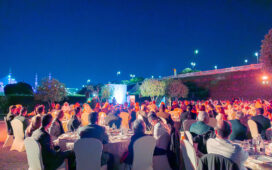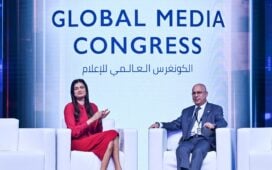The majority of people prefer to deny that corruption is present within the region’s advertising and media industry. But how prevalent is it, and can it be stamped out?
Corruption is a touchy subject. Any discussion around it is deemed unhealthy for the industry as a whole, or detrimental to an individual’s career. And yet corruption is alive and well in the region’s advertising and media industry.
Kickbacks and backhanders are by no means exclusive to the MENA region of course. In the past few years corruption scandals have erupted in China, Indonesia and India, all involving varying degrees of bribery and deceit. And yet none of the regional media agencies contacted by Campaign would comment on the subject, while only a handful of advertising agency leaders would contribute. Others would talk, but only on the condition of anonymity.
Corruption may not be endemic to the Middle East and North Africa’s advertising and media industry, but it is present. The question is to what extent and how it manifests itself. “It could be in the form of outright kickbacks or conflict of interest,” says Vatche Keverian, CEO of JWT MENA. “Various cases, various ways.”
“There was a time where not a week went by without somebody asking for a bribe promising either a piece of business or something,” says Edmond Moutran, chairman and CEO of Memac Ogilvy & Mather Holding. “As to why clients accept bribes, I cannot answer that. You will have to ask clients’ employees. But my experience in this area is quite bitter as the few times I have alerted clients that their staff have asked for money we ended up being fired because no client would accept that his people would do that.”
But how prevalent is corruption in the advertising and media industry in this region?
“Certainly not as much as it was in the 1990s and in the first 10 years of the new century, but it is far, far from where decent people want to be,” replies Moutran.
“I have heard of numerous incidences where business was assigned after an agency bribed a client,” adds Arnaud Verchère, founder and head of strategy at Tonic International. “I’ve heard of huge amounts related to media deals. I’m yet to see a client bribing an agency though.”
For example, one contributor, who offered the following only on condition of anonymity, said: “One FMCG client gave the account to an agency without a pitch and the day after turned up in a brand new Cayenne. Another real estate brand wouldn’t even put a certain agency on the roster. After months of trying the account was won without a pitch and the marketing director was in a Porsche 911.
“A typical conversation will go something like this: ‘I have $2 million to spend on creative so see what you can do with $1.5 million please,’ says the client. The agency senior executive says: ‘I thought you said $2 million?’ The client replies: ‘I did. $1.5 for you and $0.5 for me. Want the account or what?’”
Corruption is essentially driven by greed, as Moutran states. “Greedy staff, greedy suppliers, greedy employees of clients, people wanting to amass a quick fortune rather than spending their lives saving it slowly,” he says.
“Why are human beings corrupt?” adds Keverian. “Greed versus ethics and principals. Influenced by upbringing and social standards. In certain countries, cultures and families it is acceptable to get an unfair gain or advantage. In others it is taboo.”
However, Pierre Choueiri, CEO of the Choueiri Group, is adamant that the issue centres on individuals and not on companies or agencies as a whole. “There is some form of bribery and corruption present in every industry sector, across the world, which is usually carried out by individuals,” says Choueiri. “The advertising and media industry would probably be very similar to any other industry in the world.” He adds: “This is a general problem which any industry in the world faces and therefore we all have to combat corruption. This is best achieved by implementing and applying the highest standards of business ethics and operational guidelines, coupled with a solid commitment to transparency in all business and commercial dealings.”
But as international networks take more control of their regional outposts in the Middle East, there is a possibility that the noose is being tightened around those who are involved in kickbacks and bribery. Is this true?
“I really do not think the problem will be eradicated simply because equities change,” says Moutran. “I believe the problem exists everywhere. However, there are a lot more controls within
international networks when they are in locally owned agencies. These rules are being tightened daily and we have come a very long way in establishing good governance within our various set-ups. We hear more and more about local companies becoming green in the SOX compliance test. So in a way, I think good governance works hand-in-hand with international equity but, at the end of the day, it is still largely dependent on the character of the MENA management.”
Total transparency and trust will be at the heart of any attempts to combat the issue, although Choueiri admits there will always be people attempting to circumvent companies’ internal controls. “All the major agencies operating in the region abide by the corporate governance guidelines issued by their parent international network,” he says. “Consequently, increasing their control is not relevant. Nevertheless, there obviously might still be individuals who will choose to work outside the governance guidelines. But these would be isolated incidents that do not reflect on the state of the entire industry.”
“It is a process of improving the value system,” adds Keverian. “Through personal and professional education, through the development of a culture of business ethics, the application of control mechanisms and stringent compliance standards which we have always had as a company. It is our license to operate.”
Moutran concludes: “The tripartite equation must work together; media, clients and agencies must have a much healthier working relationship built on trust and respect for us to be able to work positively to eradicate this. Unfortunately, some of these criteria do not exist today.”









